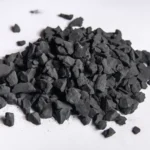Tula Skincare, a leading probiotic skincare company, is currently facing a class action lawsuit over allegations of false advertising and misleading product claims. The lawsuit alleges that Tula has made unsupported assertions about its products’ abilities to improve skin health and treat skin conditions.
Background of Tula Skincare
Founded in 2014 by practicing gastroenterologist Dr. Roshini Raj, Tula Skincare produces skincare and beauty products containing probiotic extracts and other natural ingredients. The company has quickly grown into a popular skincare brand promoted by celebrities like Kelly Ripa and sold by major retailers like Sephora and QVC. Tula touts its probiotic technology as the key to achieving healthy, balanced skin.
Allegations and Claims in the Lawsuit
The class action lawsuit filed in October 2022 alleges that Tula uses exaggerated and misleading language in its marketing to make false claims about its products’ effectiveness. Specifically, the lawsuit points to Tula’s claims that its probiotic extracts can balance skin microbiome, reduce acne, smooth fine lines and wrinkles, and improve skin barrier function and hydration. The plaintiffs argue these claims are unproven and used to mislead consumers into paying premium prices.
Key Parties Involved
The tula skincare lawsuit was filed on behalf of purchasers of Tula products in a federal district court in New York. The plaintiffs are represented by the law firms Bursor & Fisher and Reese LLP. Tula Skincare is the primary defendant, along with related corporate entities and executives named in the lawsuit.
Legal Developments and Timeline
The lawsuit was filed on October 13, 2022. Tula has yet to file a formal response, but said it takes consumer concerns seriously and is confident in the science behind its products. The next steps will involve court procedures like certification of the class and opportunities for both sides to present evidence backing up their claims and defenses before any trial or settlement.
Potential Impacts and Consequences
If the allegations are proven true, Tula could face substantial financial penalties, be required to modify its marketing claims, and suffer reputational damage. The lawsuit could also spur increased regulatory oversight and class action litigation against other beauty and skincare companies accused of exaggerating product benefits. For consumers, it highlights the importance of carefully evaluating product claims instead of relying on marketing promises.
Read: is tula skincare good
Industry and Consumer Reactions
So far, reaction in the skincare industry has been muted and the allegations against Tula have directly implicated no other brands. Consumers have had mixed responses, with some expressing anger at supposedly deceptive claims and others continuing to voice support for Tula products they feel have worked for their skin. The lawsuit has sparked wider debate about transparency and accountability standards for skincare advertising.
Tula Skincare’s Response to the Lawsuit
Tula has issued limited comments, affirming its commitment to providing products backed by “sound science and essential ingredients.” The company has not addressed the specific allegations but emphasized its focus on balancing skin and proclaimed confidence in its formulas. Tula will likely mount a more vigorous defense against the lawsuit as the legal process continues.
Conclusion
The Tula Skincare lawsuit highlights growing legal concerns over beauty product marketing and effectiveness claims. While Tula maintains its probiotic ingredients are scientifically proven, the plaintiffs argue these benefits are overstated. The court proceedings will eventually determine whether Tula crossed legal lines and misled consumers. Beyond potential impacts to Tula itself, the case may influence regulatory oversight and consumer awareness around scrutinizing skincare marketing.
FAQs Related Legal and Regulatory Issues
What government agencies oversee advertising claims in skincare and cosmetics?
The FTC and FDA both play roles in monitoring marketing accuracy.
Can companies be sued for products not working as well as claimed?
Yes, false or misleading claims can lead to consumer lawsuits even when products aren’t found unsafe or defective.
Are clinical trials required to back up skincare claims?
No specific testing is legally mandated but experts consider clinical evidence critical for supporting most product claims.
How can consumers evaluate skincare claims?
Experts suggest looking for specific ingredients proven effective rather than broad promises and considering independent testing.







